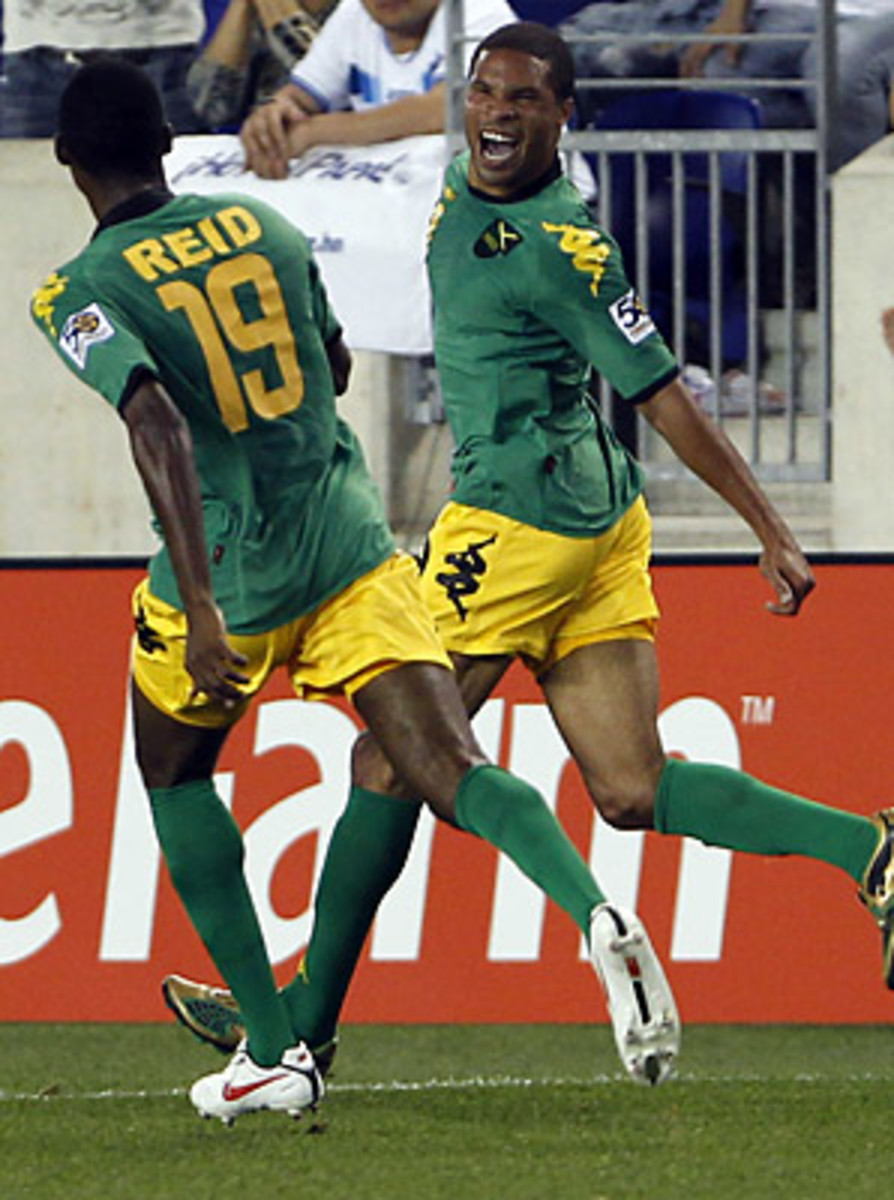U.S. faces a dangerous Jamaica
WASHINGTON -- The year was 1997. The game was a World Cup qualifier. The teams were the U.S. and Jamaica, Uncle Sam and the Reggae Boyz, going head-to-head in a raucous RFK Stadium. And ultimately the Jamaicans came away happy with the result, a 1-1 tie that frustrated the heavily favored Americans.
Fourteen years later everything has come full circle: On Sunday the U.S. will face Jamaica at RFK in the quarterfinals of the CONCACAF Gold Cup (3 p.m. ET, Fox Soccer, Univisión). And while the U.S. has a bigger global reputation, recent form has some people wondering if the Jamaicans -- who are playing their best soccer since making the '98 World Cup -- might have a chance to pull off an upset.
Jamaica won all three of its group games and is the only team in the Gold Cup not to have conceded a goal yet. The U.S., meanwhile, finished second in Group C behind Panama after losing a group-stage game for the first time in tournament history.
"I think the way the groups have gone, people might be thinking [Jamaica] are looking stronger, but I don't think any of that makes a darn bit of difference," U.S. goalkeeper Tim Howard told me on Friday. "We've still got to go out there and play and see what happens. It doesn't faze us in any way. We're at home and feeling good about playing here and being in a quarterfinal. They'll be tough, but we'll be just as resilient."
The similarities between this game and the '97 showdown are almost eerie. Jamaica comes into the quarterfinal riding a wave of confidence thanks to a group of speedy, entertaining players who don't fear the Americans. MLS fans will recognize several names, from New York's Dane Richards to San Jose's Ryan Johnson to Kansas City's Shavar Thomas.
I still remember all the details of the '97 game, not least because it was the first U.S. national team match that I had ever covered. Media access in those days was a little bit different. I interviewed Alexi Lalas and Eric Wynalda in the hotel room they shared for more than an hour. After the game -- which featured a Wynalda penalty and Deon Burton's goal after a bad square-ball by Jeff Agoos -- I rode in a rental car with embattled coach Steve Sampson to a postgame event. To his credit he didn't blow a gasket when I asked: "Is your job in jeopardy now?"
The Jamaican journalists were fun, too. Several of them wore green and gold from head to toe and cheered like mad in the press box when Jamaica scored. And when one of them asked if he could sleep on the floor of my hotel room, I figured why not. I'd be up all night writing anyway.
In the end, SI's editors decided not to run my full-length story -- it was hard to get soccer in the magazine in those days -- and elected to run a shorter piece up front about the U.S.'s search for a consistent striker. (Sound familiar? I'm still writing stories about it 14 years later.)
One big difference between now and '97 is that the media coverage of the U.S. team is a lot heavier; I'll be writing a magazine piece off the game win or lose. The U.S. team is better, too, with more players who compete in European club soccer. As a result, the U.S.'s expectations and pressure are higher than ever.
The U.S. hasn't had a good tournament so far, but the knockout stage is what people remember, not the first round, and if the Americans can turn things around on Sunday it would go a long way toward changing the skepticism surrounding this U.S. team.






